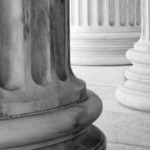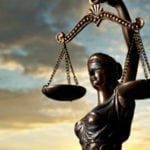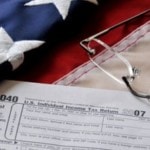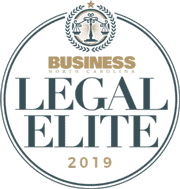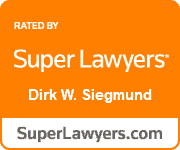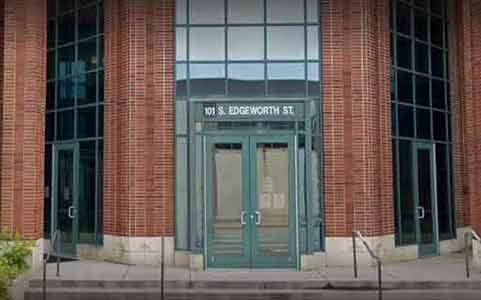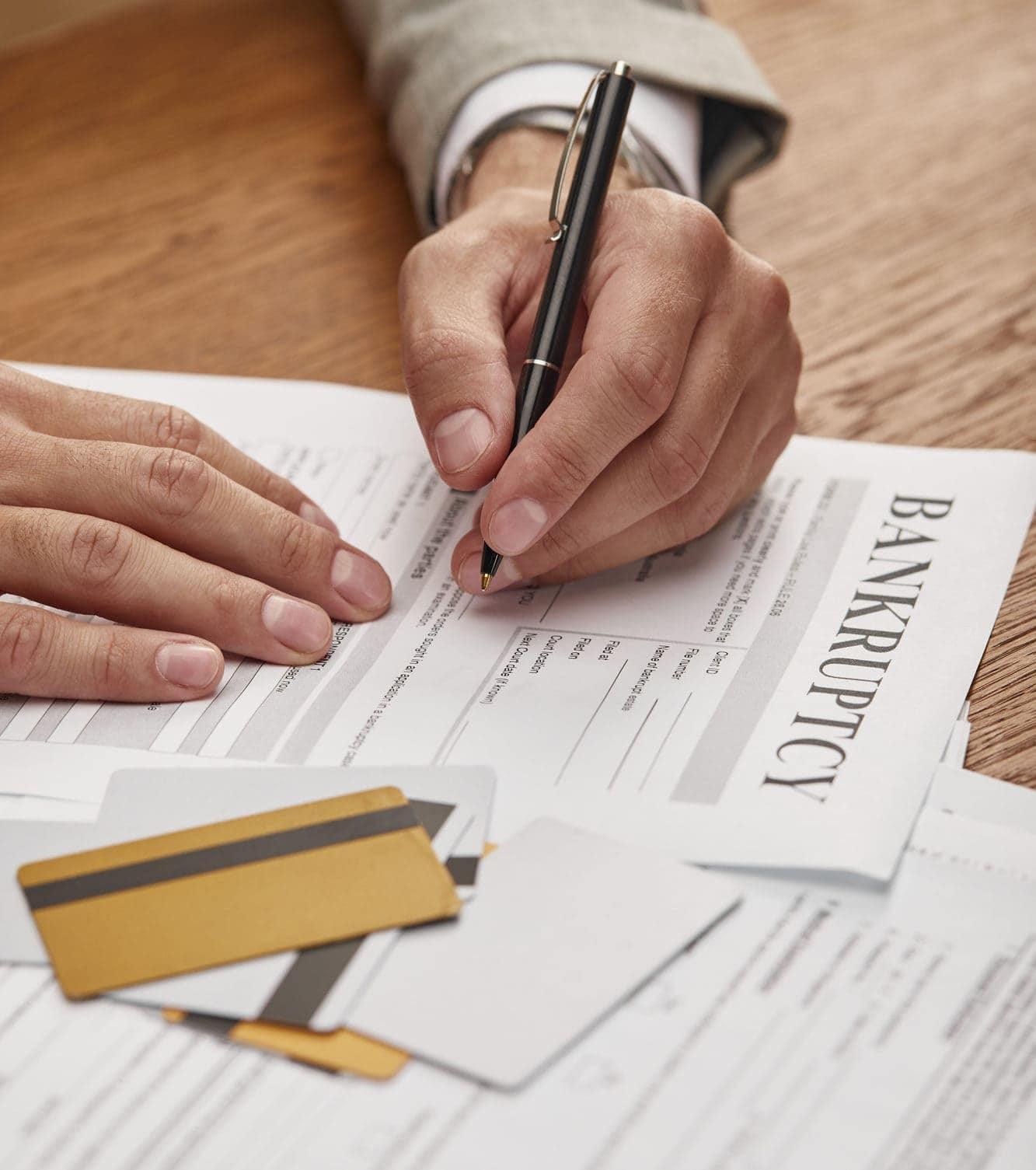
Bankruptcy Lawyer Forsyth County
If you're in debt, you might feel a wide range of emotions, and a sense of overwhelm may be the most persistent one. You might have begun exploring options for alleviating the stress you're experiencing from your financial problems and, in considering many different debt relief options, decided that the best choice is to file bankruptcy to get creditor harassment to stop and to either settle things once and for all with unsecured creditors you cannot afford to pay or enter into a repayment plan to pay creditors what you owe in arrears. If what we've just described is the predicament you're in, you should consider scheduling an initial consultation with a bankruptcy lawyer in Forsyth County at Ivey McClellan.
There are countless individuals in Winston-Salem, North Carolina, who unexpectedly incurred high medical or credit card bills or experienced other setbacks that caused them to lose their financial footing, making it necessary to seek debt relief. There are many businesses in Forsyth County that perhaps didn't make the best financial decisions, and their company may find itself in an undesirable financial situation as a result. Our firm's Forsyth County bankruptcy lawyers have extensive experience handling both individual and business bankruptcy filings and can provide you with a guiding hand every step of the way in your case in the Middle District of North Carolina.
North Carolina Bankruptcy Filing Options
Each bankruptcy type is referred to by a chapter number that corresponds to the section of U.S. bankruptcy law. There are six different types of bankruptcy, according to the United States Courts. Some of the most common bankruptcy filing types debtors file in the Middle District of North Carolina include:
- Chapter 7: This is also referred to as a liquidation bankruptcy in which any non-exempt assets a debtor has may be sold off with the proceeds going to creditors. Chapter 7 bankruptcy is the most common type of bankruptcy pursued by individuals, but is an option businesses in Forsyth County can pursue as well.
- Chapter 11: This reorganization bankruptcy option is seldom used by individuals; however is the most common among businesses. Chapter 11 bankruptcy allows debtor companies to continue operations as a trustee or "debtor in possession" while paying down their debt per the agreed-to plan they've made with their creditors and has been approved by the Court.
- Chapter 13: This is also known as a reorganization type of bankruptcy and is available only to individuals (including self-employed persons). Chapter 13 bankruptcy allows individual debtors to enter into a 3-5 year repayment plan with their creditors and keep their assets and have most unsecured debts that aren't fully paid off at the end of that period forgiven.
The three other important but less commonly filed types described in the bankruptcy code include:
- Chapter 9: Available to municipalities
- Chapter 12: Used by fishermen or family farmers
- Chapter 15: Available to foreign debtors
Factors Piedmont Triad Residents Should Consider When Filing Personal Bankruptcy
Since many prospective clients reach out to our bankruptcy law firm from Pfafftown, Tobaccoville, Clemmons, and Bethania, in addition to the biggest city in Forsyth County, Winston-Salem, who find themselves encumbered by personal debts and face the prospect of losing their homes, we think it's important to focus a section of this page on some common concerns they have.

Choosing Between Chapter 7 and Chapter 13 Bankruptcy
Individuals who file for the discharge of their debts via Chapter 7 bankruptcy must pass a means test, which looks at their income-to-debt ratio for their household size. If it seems plausible that they'd have the means to make backup payments if allowed to enter into a payment plan, then the bankruptcy Court will convert their case to a Chapter 13 one.
In the case of Chapter 7 bankruptcy, even though it's known as a liquidation type of bankruptcy, there are exempt and non-exempt assets. Bankruptcy exemptions are state-adjusted allowances for certain assets like household furnishings, jewelry, clothing, tools, and interest in a home or a single vehicle that are entitled to without fear of them being sold off to repay creditors. Our state's lawmakers decide on and publish the listing of NC bankruptcy exemptions.
While some bankruptcy filers start with Chapter 7 and have their cases converted by the court, others file Chapter 13 from the get-go because they want to keep them. In those cases, the repayment plan allows debtors in possession of secured assets to make timely payments necessary to retain their home and avoid foreclosure of their newer vehicle and stop repossession.
What Debts Can't Be Included in a Forsyth County, NC Bankruptcy Case?
If you file Chapter 7 bankruptcy as an individual or joint filer with your spouse, it's important to know that there are a few different debt obligations you cannot have discharged like other unsecured debts. Debts you generally cannot include, except under very rare circumstances, include:
- Student loans: If you want to know if you can file bankruptcy on student loans, the answer is generally not. This is the case unless you can show that paying them off would be an undue hardship for you.
- Financial assessments in criminal matters: Any fees a criminal court judge may have previously ordered you to pay, including court fines or any restitution to your victims.
- Court judgments in civil matters: This category specifically refers to instances in which a court in another jurisdiction ordered a defendant (and now bankruptcy filer) to pay a personal injury settlement to the party they recklessly or intentionally injured.
- Tax debts: If you want to know if bankruptcy clears tax debt, the answer is generally no. This is especially the case when tax obligations, like trust funds, Social Security (FICA), or payroll taxes, are concerned. However, it may be possible to get a personal income tax debt discharged through Chapter 7, depending on how old it is.
- Child support or alimony: The bankruptcy court respects orders entered in by judges in other jurisdictions and, thus, doesn't allow for the elimination of family law financial obligations by filing bankruptcy.
You may not be able to request relief from paying credit card debt if you incurred it by attempting to pay off non-dischargeable debts (like the ones above). Additionally, debts incurred within 90 days of your filing for bankruptcy may not be dischargeable either.
Steps in the Bankruptcy Process
As you're considering filing your bankruptcy petition, you're probably wondering how to expect things to progress after doing so. Generally, bankruptcy proceedings happen as follows:
- You complete pre-bankruptcy counseling
- You file your bankruptcy petition listing any secured and unsecured debt you may have
- The bankruptcy judge assigned to your case issues an automatic stay, meaning debt collectors can't continue harassing you about what you owe -- even if you've fallen behind in making mortgage payments
- There's a meeting of creditors
- You complete the debtor education course
- The bankruptcy trustee issues a notice of discharge in your case
Now, of course, the steps above best describe how a case may proceed if an NC resident or spouse declares bankruptcy like Chapter 7, but not ones involving individual debtors or businesses pursuing a reorganization bankruptcy where drafting a payment plan, making timely payments, and attending hearings or submitting paperwork to the Court to keep them in the know about your progress is necessary. This is why it's so critical for you to meet with a bankruptcy lawyer in Forsyth County like ours at Ivey McClellan to discuss your specific case so that they can advise you on what to expect at every step of the process.
How an Experienced Bankruptcy Attorney Helps You
Bankruptcy, like most legal matters, is something you can handle on your own without a lawyer's assistance, but doing so is ill-advised. Why?
It has to do with bankruptcy attorneys having an understanding of the different bankruptcy chapters. It’s important to know which chapters of bankruptcy may be ideal for you to file in your specific situation. Plus, bankruptcy codes, like most laws, are complex. Making sense of bankruptcy laws and how they apply to your case can prove challenging without any prior legal training.
That's not to say that just any attorney makes for an ideal bankruptcy lawyer, though. It's important to find an experienced bankruptcy lawyer and, during that free consultation with them, to ask questions like the ones we detail below.
What To Look For When Choosing a Bankruptcy Attorney to Represent You
Some details you may want to inquire about to determine whether an attorney is the right fit for your case include:
- Their experience in handling similar cases to yours (i.e., business versus consumer bankruptcy or chapter type)
- About how successful they've been in handling bankruptcy cases like yours (i.e., getting the debt discharged or bankruptcy approved by the Court)
- Each party's responsibilities, for example, what, if anything, you may need to take care of, and what aspects of your case can you expect them to handle (i.e., attending all court hearings, like the meeting of creditors)
- Their fee structure, including whether it's a flat rate or hourly-based
Our attorneys serve pursuing debt relief anywhere in Winston-Salem and places in between, like Kernersville, Clemmons, Rural Hall, and Lewisville. We are eager to help you navigate the bankruptcy court system in the Greater Piedmont Triad so that you can move forward in personally regaining control of your finances or putting your business back on a growth path once again. Contact us to speak with a bankruptcy lawyer in Forsyth County and make the creditor calls and stress stop today.
Schedule An Appointment
Office Locations
Greensboro
305 Blandwood Ave
Greensboro, NC 27401
Phone: (336) 274-4658
Fax: (336) 274-4540
Eden
551 Monroe Street
Eden, NC 27288
Phone: (336) 623-4600


